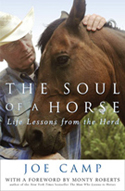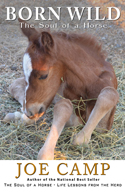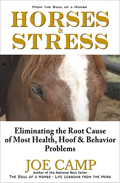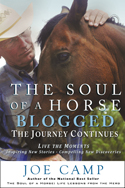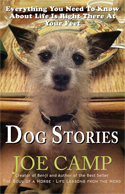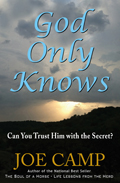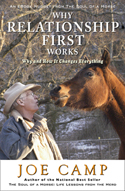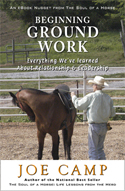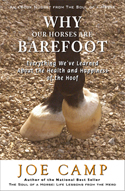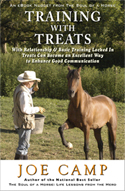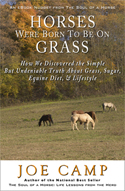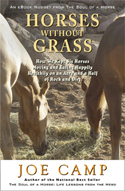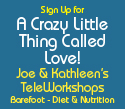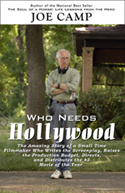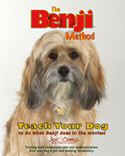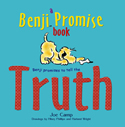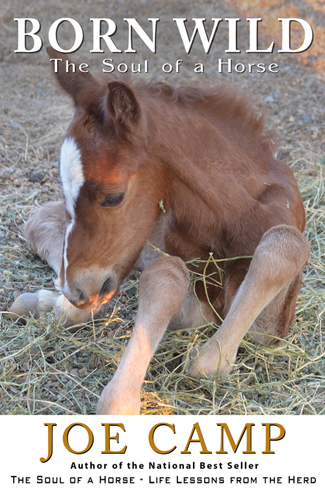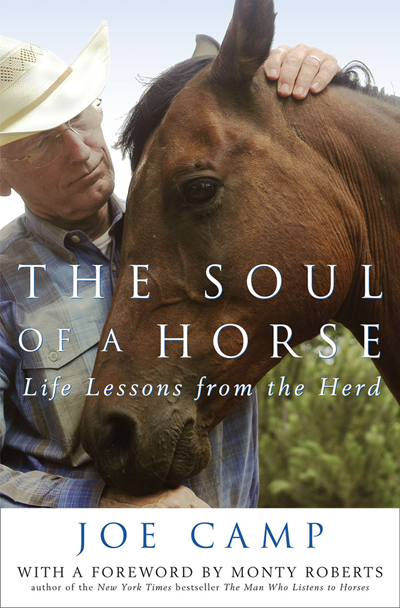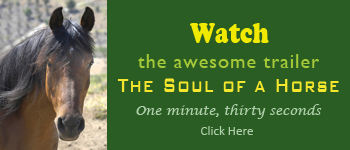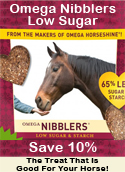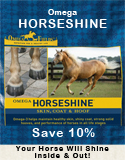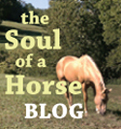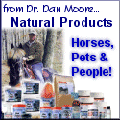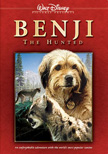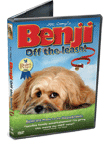Every horse on the planet is born to be wild.
It’s true.
Domestic horses and wild horses are genetically exactly the same. That means that the horse living in your back yard or at a stable somewhere is genetically the same as the horse who evolved in the wild and those still living in the wild. Just like a baby tiger would be, even though his mom, grand mom, and triple-great grand mom were all born in captivity. That baby’s genetics are still the same as those beasts roaming the African jungles.
Some people believe that a few hundred years of selective breeding can change all that, but the scientific fact, we discovered, is that it takes between 5000 and 10,000 years to even begin to change the base genetics of any species.
Which means the horses in our back yard have been programmed for millions and millions of years to live in wide open spaces where they can see predators coming, eat small bits of grass forage around the clock up to 18 to 20 hours a day, move 8-20 miles a day, on bare feet that can flex with each step to circulate blood within the hoof capsules, live with multiple horses for safety and security, and even balance their own diets if provided with enough choices to do so.
Who knew?
Obviously not us when we acquired our first horses, nor the experienced experts who were advising us with phrases like: This is the way it’s always been done! Our guys and girls all lived in a manner diametrically opposed to what their genetics were calling for. They lived in tiny little stalls where they could move at best 800 steps in a 24-hour day as opposed to the 8-20 miles a day their genetics called for. And we ultimately discovered that such a huge differential was not just affecting physical structure, it was affecting their digestion, their breathing, the health of their feet, and thereby immensely affecting their stress levels which, as medical science has finally come to realize, substantially affects all of their health. Their diet was mostly sugar in a bag, which we discovered is the absolute worst thing one can feed a horse, especially a confined one. Molasses is part of virtually every packaged feed in existence. Every grain in the same bag turns to sugar the instant it gets inside the horse. And, as mentioned above, horses are genetically programmed to eat grass forage (real grass or grass hay), little bits at a time, up to 18-20 hours a day. The horse’s hind gut is programmed to release digestive acid around the clock. Acid that digests grass hay (not sugar, not alfalfa, not pellets, not carrots, just grass or grass hay). When that grass forage is not dribbling into the hind gut on a regular basis the acid has nothing to work on but the insides of the horse itself! Unlike humans whose digestive acid turns on and off depending upon whether food is present, the horse’s digestive acid never stops. So the grass forage needs to be there. Free-choice. Around the clock.
And then there’s the herd. We discovered that a horse in a stall who cannot commune with other horses gains yet another level of stress to endure. The purpose of the herd for a prey animal is safety and security. Being with other like animals is quite literally a safety net. There are more eyes to see trouble coming. And usually the dominant member of the group is also the number one watchdog. Being deprived of that comfort, at some level, breeds huge amounts of stress.
And please don’t ever let anyone tell you that horses should never eat green grass. Recently there have been a few voices out there claiming just that because the wild horses they studied were in an arid area of the Great Basin. But such a remark is scientifically incorrect. Horses have only been in the Great Basin for approximately 300 years. The wild horse evolved for those millions and millions of years in the American west from Texas through the Great Plains’ grasslands to the San Joaquin Valley and northward to the grasses of the Dakotas, Wyoming, Montana, Oregon and Washington. Horses are born to eat grass. Just be sure that when yours do, like in the wild, there are plenty of unfertilized native grass choices as well as other choices like weeds, brambles, berries, and trees so they can balance their own sugars which they are genetically capable of doing (see the eBook Nuggets Horses Were Born to Be On Grass and Horses Without Grass).
But as I mentioned earlier, we knew none of this a mere fewer than seven years ago when we made the big leap into horses without a single clue. Maybe it helped, as they say, to come in with a clean plate. No baggage. No knowledge. Just an obsessive and compulsive urge to offer our new family members the very best life that we could. That urge-turned-insane-quest (see the eBook Nugget Why Relationship First Works :) not only culminated in our herd living a life very close to the one they were genetically programmed to live, it spawned our first two books, The Soul of a Horse – Life Lessons from the Herd, a best seller thank you so much, The Soul of a Horse Blogged – The Journey Continues, and Born Wild – The Soul of a Horse, which together have changed the lives of thousands of horses and people all across the planet (read about Happier Healthier Horses), for which Kathleen and I will be eternally grateful. Thankfully they are also humorous books. When you start where we started and really push the envelope there’s going to be a lot of stumbling around, a bunch of wrong turns, botched efforts, and, yes, stooopid mistakes. But, the trip has been so worth it and we are ever grateful to God for the opportunity to help make this planet a little better than we found it.
Which is why we needed to know all this. Our horses were born to be wild and we needed to know why. And what we should do about it. Cash, Mouse, Noelle, Mariah, Pocket, Saffron, Firestorm, and Skeeter tell us how grateful they are everyday of our lives, and I can promise you there is no better feeling on earth. – Joe Camp
Read about the treat that is actually good for your horse
Read More About Horses, Benji, Goals in Life: joecamp.info
——
The entire story of our journey with horses (at least through early 2014) is told in the two books that follow: the national best seller The Soul of a Horse – Life Lessons from the Herd and its sequel Born Wild – The Soul of a Horse.
And what a story it is as two novices without a clue stumble and bumble their way through the learning process so that hopefully you won’t have to. If you haven’t read both of these books already please do because with that reading, I believe, will come not just the knowledge of discovery but the passion and the excitement to cause you to commit to your journey with horses, to do for the horse without waiver so that your relationship and experience will be with loving, happy and healthy horses who are willing partners and who never stop trying for you. Horses like ours.
The highly acclaimed best selling sequel to the National Best Seller
The Soul of a Horse – Life Lessons from the Herd
#1 Amazon Best Seller
#1 Amazon “Hot New Releases”
Amazon & Kindle
B&N
Order Personally Inscribed Copies of Born Wild
Order Both The Soul of a Horse & Born Wild – Save 20%
Both Personally Inscribed
Please list the names for each inscription in the “instructions to Seller” field as you check out!
Read More About Born Wild
Read More About The Soul of a Horse
Watch The Soul of a Horse Trailer
Watch the Born Wild Trailer
But first read the National Best Seller that started it all
Now in it’s 17th printing:
Amazon & Kindle
Barnes & Noble
Order Personally Inscribed Copies of The Soul of a Horse
Order Both The Soul of a Horse & Born Wild – Save 20%
Both Personally Inscribed
Please list the names for each inscription in the “instructions to Seller” field as you check out!
Read More About Born Wild
Read More About The Soul of a Horse
Watch The Soul of a Horse Trailer
Watch the Born Wild Trailer
“Joe Camp is a master storyteller.” – The New York Times
“One cannot help but be touched by Camp’s love and sympathy for animals and by his eloquence on the subject.” – Michael Korda, The Washington Post
“Joe Camp is a natural when it comes to understanding how animals tick and a genius at telling us their story. His books are must-reads for those who love animals of any species.” – Monty Roberts – Author of New York Timers Best-seller The Man Who Listens to Horses
“Camp’s tightly-written, simply-designed and powerfully drawn chapters often read like short stories that flow from the heart.” Jack L. Kennedy – The Joplin Independent
“Joe Camp is a gifted storyteller and the results are magical. Joe entertains, educates and empowers, baring his own soul while articulating keystone principles of a modern revolution in horsemanship.” – Rick Lamb – TV/Radio host – The Horse Show
Visit The Soul of a Horse Channel on YouTube
See this Video
Our Paddock Paradise:
Click any book cover below to read more or purchase
Follow our latest journey with two amazing new arrivals from the wild. Kathleen’s terrific photos are worth the click.
In chronological order:
What an Extraordinary Weekend!
Firestorm’s Amazing First Day in the Playpen
No-Agenda Time – So Much Value!
An Amazing Birthday Gift from a Wild Mustang!
Saffron and Firestorm – Progress and Photos – Lots of Both!
Two Mustangs – Three Mind-Boggling Months!
For more current posts go to the blog homepage and scroll down
Follow Our Entire Journey
From no horses and no clue to stumbling through mistakes, fear, fascination and frustration on a collision course with the ultimate discovery that something was very wrong in the world of horses.
Read the National Best Seller
The Soul of a Horse
Life Lessons from the Herd
Go to TheSoulOfaHorse.com Homepage
The Soul of a Horse Video Channel on Vimeo

